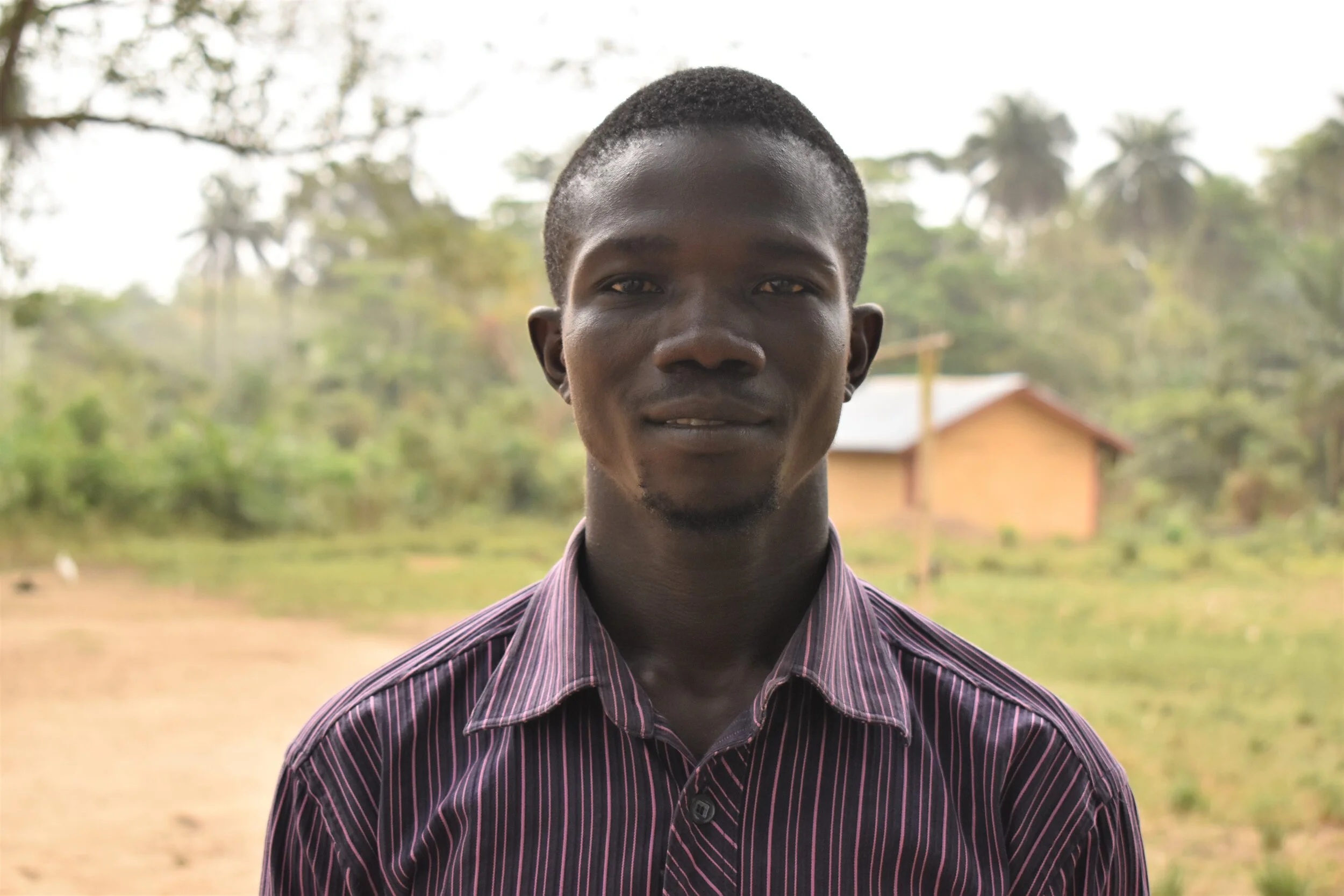Water Wells Restored Our Community’s Pride
This story was originally told by Moinina Adu of Yandohun.
It was translated from Mende and written by Nabieu Senesie, Monitoring, Evaluation & Learning Field Officer and Hameedatu Turay, Nurturing Opportunities for Women Program Officer.
Yandohun is a small community in Kailahun district, Eastern Sierra Leone. The major economic activity of the people in the village is agriculture. Moinina Adu is married with a wife and has one child. He works hard in cultivating a farm to support his family, but the absence of safe drinking water facilities in the village made it so his family and others in the community had to cover 3-5 miles to fetch clean drinking water before OneVillage Partners collaborated with this village. This contributed poorly to the wellbeing of Moinina and his family and the general community members.
The water wells in the village were filthy with unwanted particles making it unsafe for drinking. Because Moinina and the community had no other option, they continued drinking from the existing unsafe water sources. “Conflicts over fetching water in the dry season started dividing us,” said Moinina. As a quick fix, a non-governmental organization (NGO) agreed to construct a temporal traditional birth attendant structure in 2013 to cater for sick children and women suffering from diarrhea and other diseases. The community hoped this would eradicate the prevailing disease. But then in 2014, there was a sudden outbreak of water related diseases, such as diarrhea. Then the sudden death of one of the project construction workers as a result of drinking from unsafe water sources shocked the community. As a result, the remaining construction workers left the community which led to an incomplete structure. Sadly, Moinina’s community lost its respect for strangers, who had accused the community and its leaders of indecent hygiene practices. “Strangers were afraid of our community because of the lack of pure drinking water in the community and a less guaranteed health situation.”
In 2016, OneVillage Partners began a partnership with the community of Yandohun, which identified access to clean drinking water as a challenge. So volunteer-leaders trained by OneVillage Partners staff through the Community Action program addressed health and sanitation related challenges and rehabilitated water wells in the community as well as sensitized the community on the essence of improved hygiene practices and dangers of drinking from unsafe water sources. This was a turning point in the lives of Moinina and the entire community. Through this program, the community came together and planned ways to solve the problem of drinking from unsafe water sources. “From OVP meetings, I learned about the importance of practicing proper hygiene and sanitation.” Most importantly, Moinina said, “I participated in planning the project that had provided safe drinking water sources for everyone in my village.”
The Community Action volunteers and leaders educated community members on the importance of working together to address their challenge. Moinina helped the Community Action volunteers to mobilize local materials and constructed two safe drinking wells for the community. Additionally, they shared households’ contributions to subsidize their community project’ budget and pay their portion of the skilled workers wages. Households contributed Le 20,000 (Approximately $ 2) each and provided food for laborers during the project implementation. Also, Moinina Adu helped the women’s leader to collect household’ contributions, while the youth leader coordinated daily work.
Even though the community prioritized this project as their felt need, some community members were unwilling to fully participate in the planning and implementation. People appointed to prepare meals for workers at the site failed to turn out for the assigned tasks. Additionally, the local skilled workers contracted from another village was also missing work without prior communication. This led to delays in completing the project on time. Moinina and other community members became discouraged and thought that the project would be abandoned like some previously unsuccessful projects. Although not a volunteer himself, Moinina engaged community volunteers and leaders for a general meeting to discuss the project’s implementation challenges. His action motivated the community to hire other skilled workers who instead live in their village to complete the project. “I was worried of a possible abandonment of our project. I am proud to have successfully contributed to the completion of this project which is now providing the community a lifesaving water source and also restored our pride.” He continues, “Our previous image has now been restored as a village”. Unlike previous days as a community, the constructed wells provided Yandohun an easy access to safe drinking water and knowledge of improved sanitation and hygiene practices for everyone. This project has immensely contributed to reduction in diarrhea in the community, according Moinina.
The leaders empowered the Community Action Group volunteers to strictly monitor the community hygiene and sanitation practices in the community. The village formed a Water Management Committee who were trained by OneVillage Partners and provided tools to manage and sustain the water wells. “I’m now proud that my community’s health and pride are completely restored,” Moinina said.
“As a lesson learned from OVP, I am hopeful that other communities having similar challenges will learn from us to mobilize resources for themselves and protect their locally available drinking water sources. This will help them to minimize health related issues to save lives,” Moinina Adu concluded with a hopeful look.

